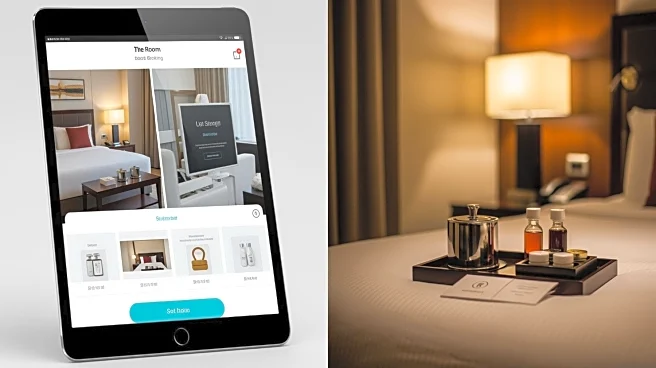What's Happening?
Hotels are facing challenges in bridging the gap between digital personalization and on-site guest experiences. While hotels have invested in digital tools to offer tailored online experiences, the transition
to in-person service often falls short. This disconnect is attributed to operational silos and legacy technology systems that fail to integrate digital data with on-property service. As a result, guests frequently encounter a lack of personalized service upon arrival, despite having received customized offers and communications online. The issue is compounded by the fact that many hotels treat digital and on-site data as separate entities, leading to a fragmented guest experience.
Why It's Important?
The inability to provide a seamless personalized experience from online to on-site can impact guest satisfaction and loyalty, which are crucial for the hospitality industry. As guests increasingly expect personalized service, hotels that fail to deliver may lose competitive advantage. This gap also highlights the need for the hospitality industry to invest in integrated technology solutions that unify guest data across all touchpoints. By doing so, hotels can enhance their service offerings, improve operational efficiency, and ultimately increase guest retention. The situation underscores the importance of aligning digital strategies with operational realities to meet evolving consumer expectations.
What's Next?
To address these challenges, hotels are encouraged to adopt a unified platform that integrates guest profiles, preferences, and behavioral data across all systems. This approach would enable staff to access real-time insights and provide personalized service throughout the guest's stay. Additionally, investing in staff training and change management is essential to ensure that technology enhancements translate into improved guest interactions. As the industry moves towards more data-driven operations, hotels that successfully implement these strategies may set new standards for personalized hospitality.
Beyond the Headlines
The personalization gap in hotels also raises broader questions about the role of technology in hospitality. While digital tools can enhance efficiency, they cannot replace the human touch that defines true hospitality. This situation highlights the need for a balanced approach that leverages technology to empower staff rather than replace them. Moreover, the industry's reliance on technology must be accompanied by a cultural shift that values personalized service as a core component of the guest experience.









